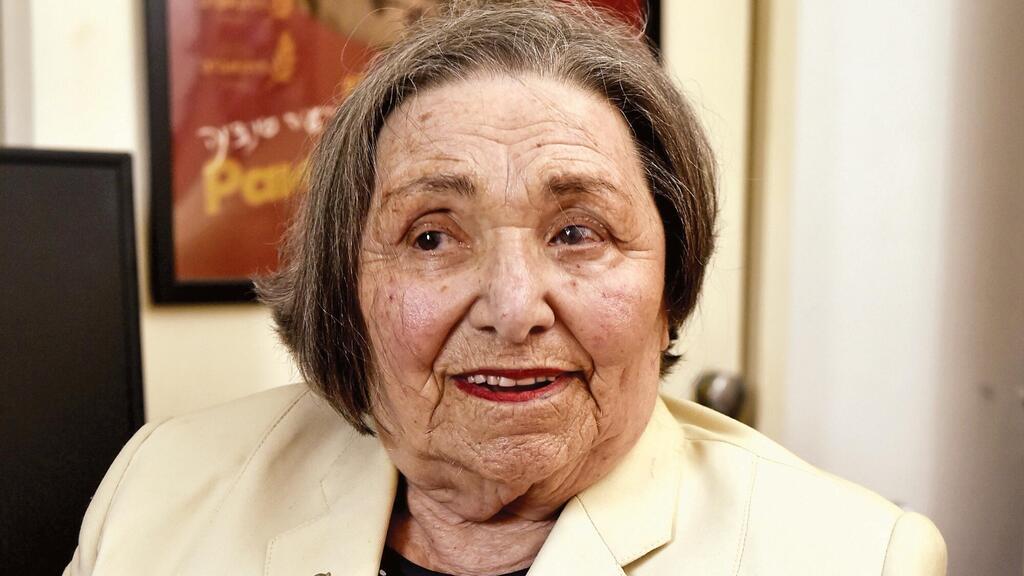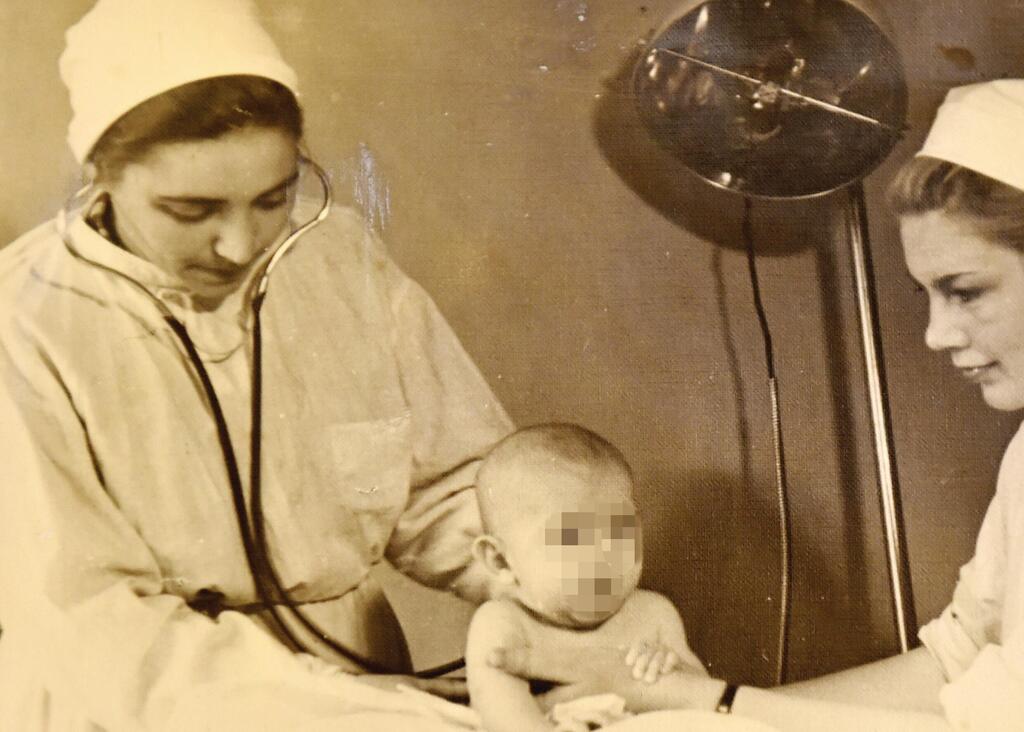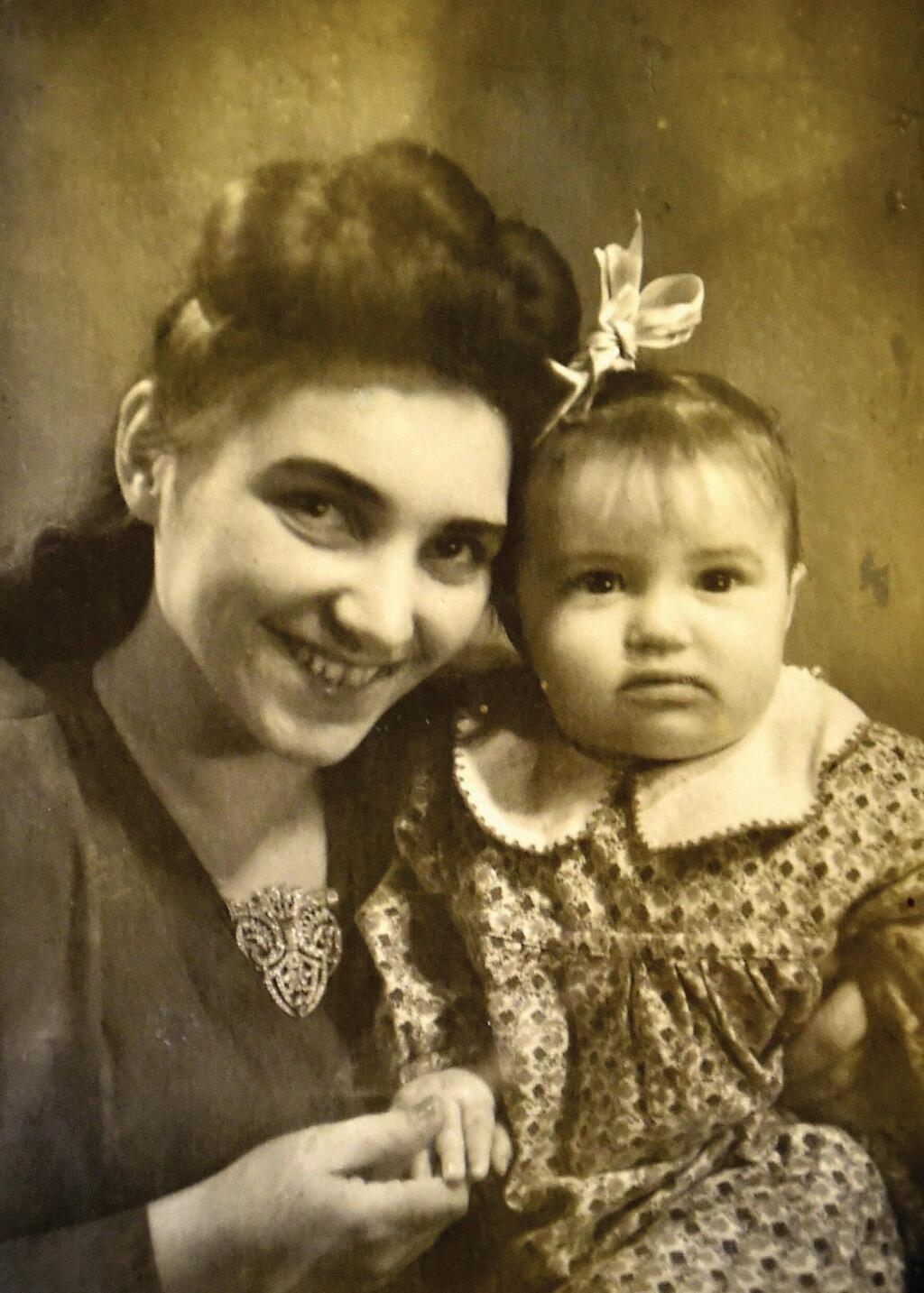Dr. Raisa (wife) Sinitsyna, 99, from Holon, a retired pediatrician, mother of a daughter, grandmother of a granddaughter and great-grandmother of three, recalls the 872-day Nazi siege over Leningrad:
"I was 17 years old when the Nazis invaded Russia in August 1941," recounts Sinitsyna. "With my parents divorced and my mother volunteering in a hospital outside the city, I sought refuge in a military hospital in Leningrad. Little did I know that the following September would mark the beginning of the nearly 900-day siege of Leningrad.
More Stories:
"Dad resided in a different city while my mother, a dedicated doctor, selflessly volunteered at a hospital outside our hometown. Before her departure, she arranged for me to volunteer at a military hospital in Leningrad, knowing it would ensure my access to food. Little did we anticipate that September 1941 would mark the onset of the arduous 900-day siege of Leningrad," she adds.
"Born in 1924 in Azerbaijan and raised as an only child in a Belarusian Jewish family, I relocated to Leningrad (St. Petersburg) at the age of 12. At the hospital, designated for amputated soldiers, my role was not clearly defined.
I embraced various tasks, from scrubbing floors and tending to the wounded, to laundering blood-soaked dressings and sheets. Additionally, I assisted in transporting stretchers between different floors and provided aid during limb amputations in the operating room.
From the early stages of the war, the Germans targeted the vital food warehouses, depriving the city's inhabitants of sustenance throughout the relentless siege. A dire famine ensued, forcing desperate measures.
By December, even cats and dogs vanished from the streets, because they were all eaten. Tragically, those unable to secure any food succumbed to starvation. Throughout the harrowing 900-day ordeal, approximately 1 million lives were lost to hunger in Leningrad.
As hospital staff, we received a meager ration of 125 grams of bread each day, consisting of minimal flour mixed with copious amounts of straw. Despite our perpetual hunger, we toiled around the clock, selflessly dedicating ourselves to the well-being of others.
In November 1942, the menacing rumble of German planes grew closer, and the piercing wails of alarm became a nightly symphony. On one fateful night, as the deafening roar intensified, bombs cascaded perilously close to our vicinity.
Filled with trepidation, the wounded trembled, fearing the very building that sheltered them could crumble under the relentless assault. Those with functioning limbs sought their own escape, or valiantly assisted the team in transporting stretchers, inching amputees toward safety.
Some crawled desperately across the floor, searching for the exit. Amid the chaos, a spirit of unity prevailed as everyone lent a helping hand. Seeking refuge in a nearby square, we braved the darkness, bearing witness to bombs cascading around us.
Illuminated by fleeting flares, we miraculously emerged unscathed – an extraordinary blessing! With the threat subsiding, our arduous task of retrieving the wounded commenced. Some sought shelter in neighboring houses, others hid themselves, while a few were hesitant to return to the hospital. It took us nearly a week to gather and tend to every soul in need.
Amid the relentless nightly bombings, I faced further harrowing ordeals during the grueling siege. I will never forget that freezing day when I stepped outside in the bone-chilling cold of minus 45 degrees.
A convoy of military trucks, concealed by sheets, caught my eye. As fate would have it, a gust of wind unveiled the horrifying truth before me. There lay a pile of bodies, motionless and resembling fallen logs.
It dawned on me that these trucks were tasked with collecting the deceased from all corners of the city, destined for mass graves. Each day within the hospital's walls, death loomed ominously, casting its dark shadow upon us all.
And in 1942, I too fell victim to the violence, struck by shrapnel from the relentless shelling outside the building. I was rendered unconscious, and though I recovered, that haunting sight will forever remain etched in my memory.
In the aftermath of the siege being broken in 1944, my commitment to the hospital remained steadfast. In 1945, seizing an opportunity for sustenance, I embarked on my journey as a medical student at Leningrad University.
The allure of work cards, guaranteeing access to food, beckoned me forward. However, the bureaucratic demands of a matriculation certificate surfaced at the end of my first year – a credential I lacked, but that didn't stop me from pressing forward with my studies.
During a visit to my grandparents in Azerbaijan, a sister shared intriguing news of a remarkable man– a war veteran with a disability, specifically a leg amputation. Unfazed by his handicap, we arranged our first meeting, after which I returned to Leningrad, while he pursued studies in food engineering at Odessa University.
Over time, our correspondence blossomed into a profound love, and we cherished occasional encounters. Finally, in the summer of 1948, we exchanged wedding vows in Odessa, and I resumed my studies in Leningrad with a heart brimming with joy.
A year after our marriage, our only daughter, Elin, came into our lives. As I completed my medical studies, my husband pursued his own educational journey, opting for an internship in the city of Zaporizhzhia.
Determined to be by his side, our daughter and I joined him there, hoping for a shared future. However, circumstances unfolded differently as he decided to pursue a doctorate in Odessa and remained there.
Eventually, we acknowledged the need for a formal separation, finalizing our divorce when our daughter was four years old. Throughout those years in Zaporizhzhia, I dedicated myself as a doctor specializing in pediatric lung diseases.
As a renowned and respected doctor, I had established deep connections within the intelligentsia of the city. The thought of leaving didn't cross my mind. However, when my only granddaughter, Elin's daughter, made the bold decision to immigrate to Israel at the age of 16, I couldn't bear the thought of her journeying alone.
In 1992, at the age of 68, the three of us embarked on our immigration journey. Despite not pursuing an Israeli medical license or learning Hebrew, I found fulfillment as a social activist, assuming the role of chairperson for the Holon branch of an organization dedicated to soldiers and partisans disabled in the war against the Nazis.
While my daughter diligently passed medical exams and worked for years at Wolfson Hospital, she now serves as a doctor at the Executives Medical Services.
The bottom line is that given my personal encounter with the devastating impact of war, I firmly believe that our foremost duty is to exert relentless efforts in averting conflicts and ensuring peace prevails."
Over the years, Sinitsyna was awarded a dozen medals and she is one of only five women in Israel who have been honored for their personal bravery in World War II.




